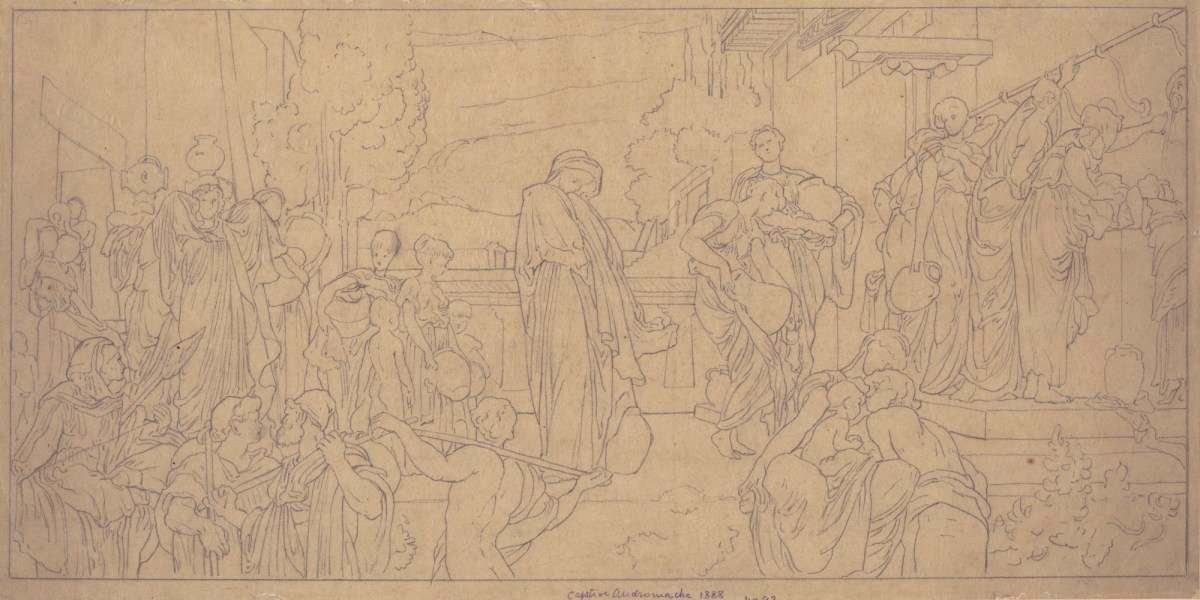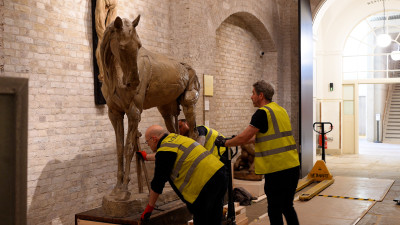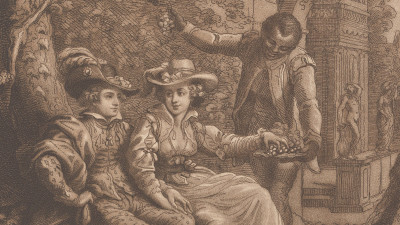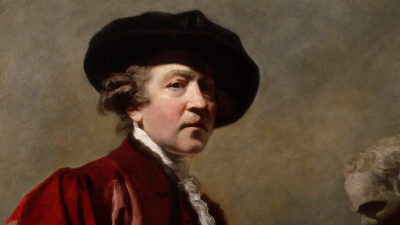
Lord Leighton PRA, Tracing for 'Captive Andromache', by 1886-8.
Pencil on tracing paper. 203 mm x 404 mm. © Photo: Royal Academy of Arts, London.
This image is not available to download. To licence this image for commercial purposes, contact our Picture Library at picturelibrary@royalacademy.org.uk
Tracing for 'Captive Andromache', by 1886-8
Lord Leighton PRA (1830 - 1896)
RA Collection: Art
A pencil tracing for 'Captive Andromache' (1886-8, Manchester City Art Galleries). Compositionally, this tracing is almost identical to the finished work. The only notable difference is the presence of a small child next to the young girl apparently modelled on Lena Pullan (to the left of Andromache) as this figure is omitted in the painting. This tracing is probably later than a similar, though squared up, tracing in the Leighton House collection.
These tracings all relate to Leighton's painting 'Captive Andromache' (c.1886-8, Manchester City Art Galleries). The subject of the painting is loosely based on a passage in Homer's Iliad in which the Trojan leader, Hector, reflects on the possible fate of his wife, Andromache, if he were to be killed. In the text, Hector remarks to his wife 'I see you there in Argos, toiling for some other woman at the loom, or carrying water from an alien well, a helpless drudge with no will of your own' (trans E.V. Rieu, 1950, p. 129).
The painting was exhibited with a quotation from Elizabeth Barrett Browning's translation of The Iliad:
'Some standing by,
Marking thy tears fall, shall say 'This is she,
The wife of that same Hector that fought best
Of all the Trojans when all fought for Troy.'
These tracings include four studies for the composition, one for a group of figures and one of a Greek vase. Unusually, two of the compositional tracings differ significantly from the finished painting. One appears to be an alternative, or early, version of the scene while the other includes many more figures than the final composition. The tracings also indicate that Leighton experimented with the pose of Andromache, who is shown in a frontal pose in one of these earlier versions. In the finished painting, the sense of Andromache's detachment and melancholic contemplation is accentuated by her profile pose.
Object details
203 mm x 404 mm
Start exploring the RA Collection
- Explore art works, paint-smeared palettes, scribbled letters and more...
- Artists and architects have run the RA for 250 years.
Our Collection is a record of them.



